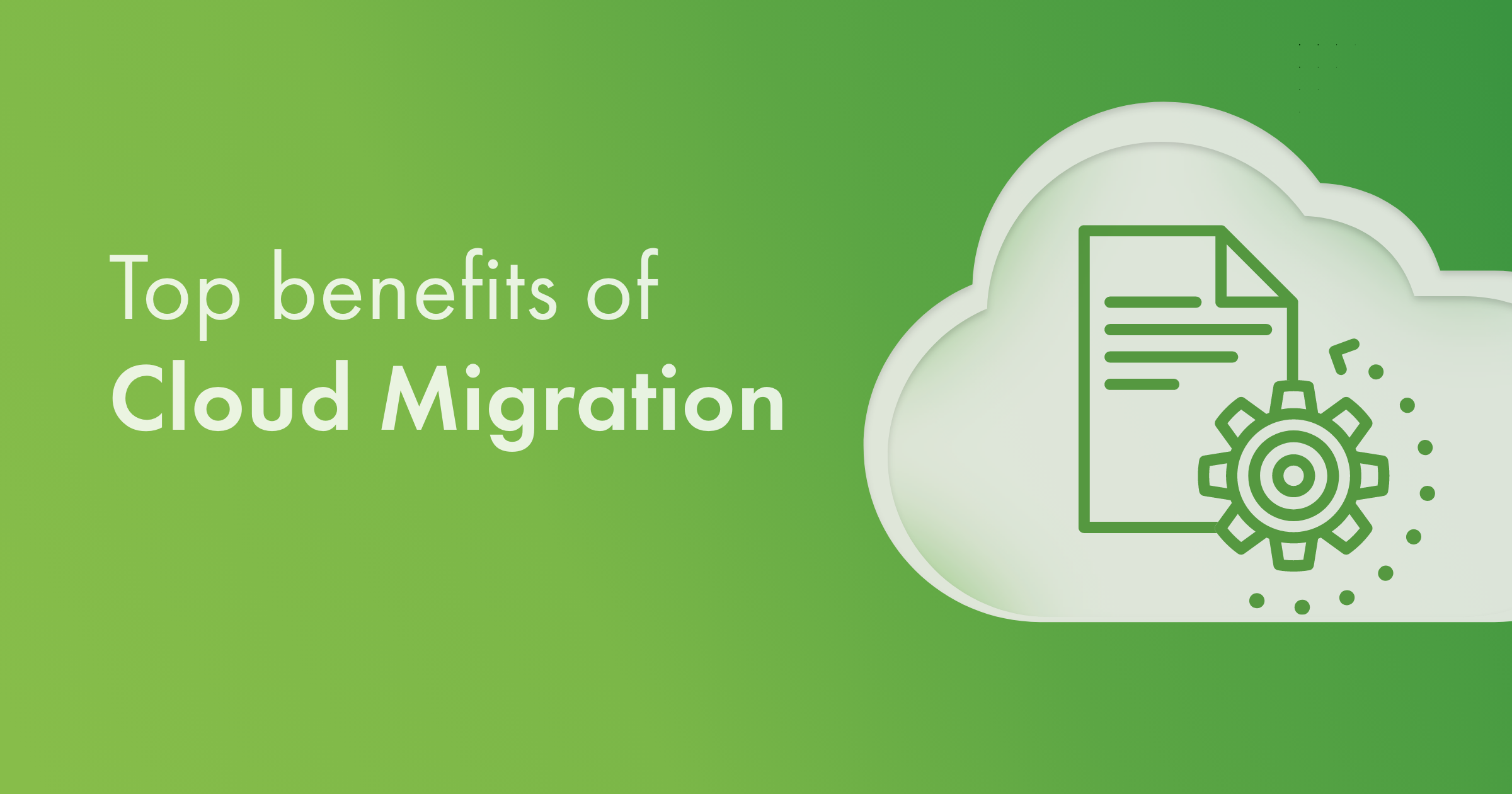Cloud, as a self-service on-demand environment, is now key to delivering end-to-end digital transformation. Cloud computing is more important than ever before in assisting organizations in reopening, reinventing, and navigating uncertainty. The process of migrating a company’s digital assets, services, databases, IT resources, and applications into the cloud, either partially or completely, is known as cloud migration. Moving from one cloud to another is also referred to as cloud migration. As a result, detailed analysis, planning, and execution are required to verify that the cloud solution is compatible with the required business goals. When working on preparations for a cloud migration strategy, keep in mind that it’s not just about getting there; it’s also about what you do once you’ve arrived.
Top Benefits of Cloud Migration
Companies have increasingly been moving their services and data to the cloud as they adjust to becoming more flexible digital workplaces in response to increased online demand and remote working. Businesses that have already begun the transition to cloud computing are speeding up a cloud transformation that will pave the way for the future. Let’s take a look at the top 5 benefits of cloud migration.
- Access from anywhere, anytime
Because all your data is stored on the cloud, you can access it regardless of what happens to your physical equipment. Migrating to the cloud also means that members of your team can access critical data and business information from any device, anywhere in the world. It provides the organizations with a lot of room to develop and expand while still fulfilling operational needs. No more lost work; the team can operate productively and securely from anywhere at any time. Many cloud providers can also monitor mission-critical applications and hardware. Your team won’t need to be in a certain location to deploy, upgrade, or fix issues with any of the machines they’re using thanks to cloud services. When opposed to the requirement of being on-site, this makes it a more flexible alternative. Furthermore, the cloud’s uniformity in provisioning and deployment processes can make collaboration much easier because everyone is on the same page, without the need for shadow IT. Using internationally distributed data centres and hybrid cloud computing solutions, a business can scale up processes and grow even to international markets, depending on its needs. While cloud services promote agility and flexibility, agile businesses and developers believe that cloud computing benefits their work and aspirations.
- Improved Security
Another important motivation for businesses to go to the cloud is security concerns. When done correctly, cloud services can provide more security than traditional network systems.
One might believe that an open environment like a cloud facility would be more vulnerable to security risks, but cloud service providers implement strong security steps to protect data from threats, including excessive traffic from outside the allowed locations. Cloud service companies with strong data encryption services are a good choice for businesses. Many competent cloud service providers have solid password and access management policies in place. From design through deployment, businesses may evaluate if these cloud service providers adhere to critical security criteria.
Cloud monitoring solutions can also follow enormous amounts of data and swiftly pinpoint the source of production issues or outages.
- Scalability and its power
With workloads in the cloud, you can swiftly respond to peak demand and scale down capacity as needed. All of this happens automatically and takes very little time and effort. The cloud empowers organizations to manage their resources based on their own personal and commercial requirements. This level of control enables an organization to save a lot on the costs of maintaining massive data centres that rarely deliver on their promises. A cloud migration allows companies to expand and do so without disrupting their current infrastructure. This implies that the data and applications can be developed without affecting the company’s performance or client experience. The company may benefit from the cloud’s lower overhead expenses and better agility to boost efficiency, production, and customer happiness with a fraction of the workforce.
- Improved Cost Management
Companies can focus and help to lower their operational costs while boosting IT operations by switching to the cloud. Switching to the cloud also means that they will only pay for what they need; there is no need to maintain expensive data centres if the critical data is stored in the cloud. According to a Microsoft Office 365 survey, 82 percent of SMBs report lower costs as a result of cloud adoption, with 70 percent reinvesting the savings back into their business. The hardware for a company’s on-site data centres requires a large initial capital investment, which grows year after year if you’re digitizing the solutions while also risking the technology becoming obsolete. The corporation largely incurs only monthly operating costs with cloud services. A corporation could save cost on the expenditures associated with hiring professional IT consultants. The cost benefits of cloud computing are many.
- Integration and business goals
Moving to the cloud enables any company to link systems more easily and increase the efficiency of all of its services. The cloud has enhanced productivity for 59 percent of small businesses. Data centres, like any other machine, suffer from increased load and decreased efficiency over time. Traditionally, a company that uses a data centre would have to do an infrastructure refresh on a regular basis to maintain its data centre software and hardware are current and functional. This is a time-consuming, costly, and monotonous activity that wastes valuable time and resources. Based on business demands and consumer desires, cloud services and applications are constantly developed, updated, and expanded. As a result, the new cloud environment will be able to grow and extend to suit the company’s needs. The business-critical apps will respond dynamically to fluctuations in traffic when there is a shift to the cloud. This implies that companies may boost productivity and profits by scaling up or down to meet demand and only using the resources it requires. The cloud provider can also handle the complexities of your infrastructure, allowing companies to concentrate on what really matters: the business. Because of the simplicity and convenience of cloud remote access, teams can concentrate on working hard and developing their business.
Final Thoughts
Cloud migration and platforms are relied on and serviced by a new generation of technology leaders and professionals. Companies that move to the cloud can take advantage of cutting-edge new technology such as artificial intelligence and machine learning. Competition is fierce nowadays, and the technological landscape is continuously evolving. Many more cloud services are projected to emerge as more businesses migrate to and prioritize cloud computing, providing the opportunity for enterprises to streamline processes, innovate, and transform themselves into digital-first businesses.



